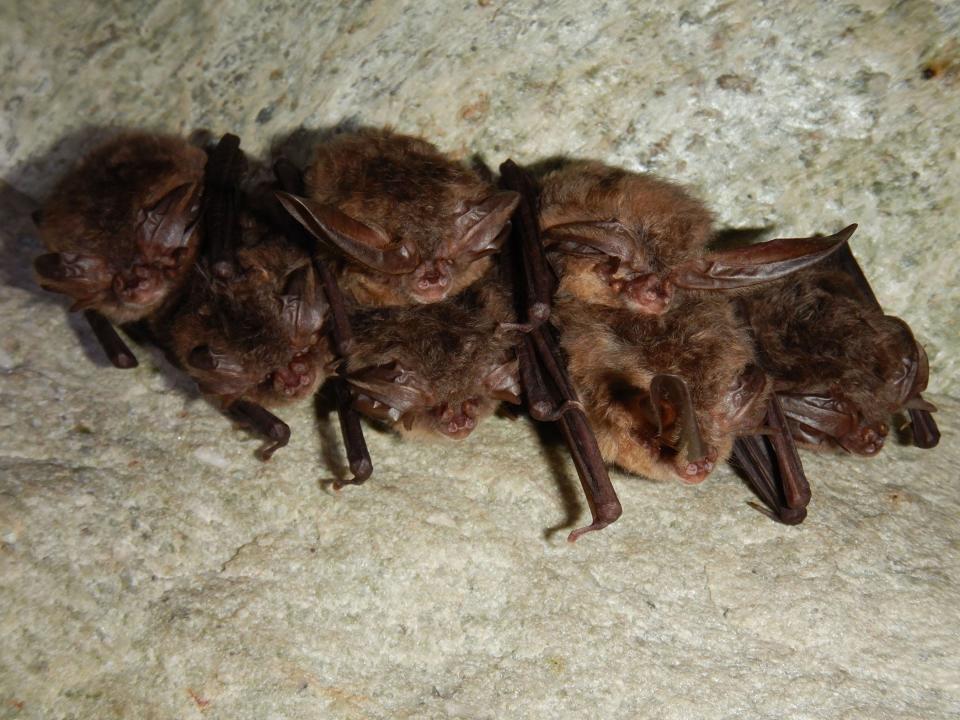Conservation groups sue US Forest Service alleging Pisgah-Nantahala plan endangers bats
ASHEVILLE - A coalition of five conservation organizations have sued the U.S. Forest Service, alleging the 2023 management plan for the Nantahala-Pisgah national forests failed to protect the biologically diverse areas, including the habitats of federally protected bat species, as the plan expanded logging practices in the more than 1 million acres of national forests.
The Southern Environmental Law Center filed the lawsuit against the U.S. Forest Service on the behalf of The Center for Biological Diversity, Defenders of Wildlife, MountainTrue and SierraClub in the U.S. District Court for the Western District of North Carolina in Asheville April 19.

The Pisgah and Nantahala national forests cover more than a million acres of mountainous terrain in Western North Carolina. The two are the largest of the state’s four national forests and portions of the forests are open to timber harvesting, hiking, fishing, hunting, paddling, horseback riding and other activities.
In 2023, the U.S. Forest Service released a new management plan for the two forests. The decade-long revision process on the Nantahala-Pisgah management plan — which will guide management for how much can be logged and how much of the land is protected, as well as many other forest uses, for the next 10-15 years — has been plagued with conservation group concerns about the long-term impacts of expanded logging practices.

The lawsuit alleges the Forest Service worked with "inaccurate and incomplete" information during the approval of the management plan violating the Endangered Species Act.
"The Forest Service ignored the best available science and withheld critical information from the Fish and Wildlife Service, which oversees endangered species protection,” Josh Kelly, public lands field biologist for MountainTrue, wrote in a news release.
The ESA says “federal departments and agencies shall seek to conserve endangered species and threatened species.” ESA also says that federal agencies cannot jeopardize the existence of endangered or threatened species through any action they take.
The lawsuit specifically states the U.S. Forest Service downplayed the extent the habitats for the northern long-eared bat, Indiana bat, Virginia big-eared bat and gray bat would be affected by the new management plan and that they withheld information from the U.S. Fish and Wildlife Service.
The suit comes after the organizations had previously filed a letter in July 2023 threatening a lawsuit for the very same reason.

More: Endangered WNC bats: Wildlife commission seeks public input on plan to protect species
“The Forest Service had a great opportunity to restore forests and protect endangered forest bats, but the agency refused — now we are suing,” wrote Sam Evans, leader of SELC’s national forests and parks program, in a news release.
Along with the U.S. Forest Service, the organizations are suing Forest Supervisor of the North Carolina National Forests James Melonas and the U.S. Fish and Wildlife Service and the agency's director Martha Williams. Melonas and Williams are being sued in their official capacity, meaning it is not against them personally.
U.S. FWS spokesperson Jennifer Koches told the Citizen Times April 19 "the U.S. Fish and Wildlife Service does not comment on proposed or pending litigation."
U.S. Forest Service spokesperson Adam Rondeau told the Citizen Times "it would be inappropriate for us to comment on the specifics of the case at this time," but gave the following statement on the development of the 2023 management plan:
"The Nantahala-Pisgah forest plan was developed using the best available science surrounding ecosystem restoration in an effort to ensure the long-term health and resiliency of the forest. This process also included a substantial amount of engagement with a diverse group of stakeholders, including experts in wildlife management practices. As a result of the feedback gathered, we strengthened the plan’s direction around sustainable recreation, wildlife habitat and management of national trails."
In January, another lawsuit had been filed by the Southern Environmental Law Center on behalf of the Chattooga Conservancy, the Center for Biological Diversity, Defenders of Wildlife, MountainTrue and the Sierra Club, claiming a plan to log a section of the forest violates the National Forest Management Act.
Defenders of Wildlife, Et Al. v. USFS, Et Al. by willhofmann2 on Scribd
More: Mother's Day idea: This Western NC city named best in South for mother-daughter weekend
More: US Forest Service codifies Upper Chattooga River paddler permit regulations for NC and SC
Will Hofmann is the Growth and Development Reporter for the Asheville Citizen Times, part of the USA Today Network. Got a tip? Email him at WHofmann@citizentimes.com. Please help support this type of journalism with a subscription to the Citizen Times.
This article originally appeared on Asheville Citizen Times: Conservation groups sue US Forest Service over Endangered Species Act

